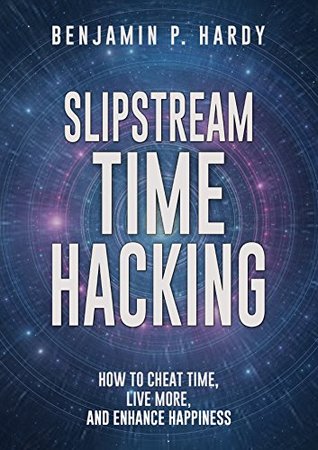More on this book
Community
Kindle Notes & Highlights
Read between
June 5 - June 8, 2024
Despite the exploration of complex ideas, the premise of this book is actually quite simple: The faster someone moves toward a desired destination, the slower time moves for them. The goal of this book is direct: To compress the highest quality and meaning of life into the time each person has to live.
What if rather than focusing on how long something took, we focused on how far we went?
The compression of time is not a matter of compounding activities, but the compounding of meaning.
If a task is perceived to be unimportant, it will take enormous amounts of time to complete. Conversely, if a task is perceived to be important, it will get done soon—sometimes immediately, depending on how important and urgent.
Additionally, if a task is perceived to be complex, it will take longer to complete. Thus, by pursuing things we believe to be important and breaking them down into their smallest parts, time slows and more is accomplished. Simplicity is the ultimate sophistication.
Slowing time is truly a matter of quality more than quantity. The destination a person is traveling toward must be intrinsically desirable. When on the wrong path, time will fly and what was done during that time will be forgotten. The goal isn’t an infinite quantity of time, but the highest quality of time. This is where time slows down.
Wayne Dyer has said, “There is no way to happiness. Happiness is the way.”
Tony Robbins jokes, “How many psychiatrists does it take to change a light bulb? Only one, but it’s expensive and takes a really long time.” To Tony, the past is inconsequential. In a single moment, a person can choose to change everything. Change doesn’t have to take a long time, it happens the instant we decide.
Stephen Covey expressed, “We don’t see the world as it is, but as we are.”
A person can change her beliefs, attitudes and dispositions, the meanings of experiences, and desires for the future all instantaneously. For this reason, Brendon Burchard has said, “We must govern our own lives, and when our thoughts and actions become destructive it is our responsibility to alter or abolish them and to institute new habits as the foundation for a freer, happier life.”
Within a perceived reality, it is the responsibility of each person to choose their destinations as well as the pathways and pace involved in reaching those destinations. Ultimately, we create our own universe.
Some will consider this a self-help book. Others will call it speculative fiction. To me, it is both, and with that framework in mind, slipstream adopts new meanings and can be repurposed for new contexts. Thus, from here on, slipstream will be defined as the optimal pathway(s) toward a desired destination. Cast in this light, slipstream encompasses more than just travel through space; it represents your ability to manipulate and enhance the quality of your time and life.
Throughout the rest of this book, wormholes will be defined as space-time shortcuts generated through created luck—luck which comes to those who seek it. Examples of these types of wormholes are: finding a great mentor, landing your dream job, or reading a book that radically alters your paradigm.
There are three distinct requirements for personal freedom: 1) a heart at peace, 2) healthy relationships, and 3) upright character.
Derek Sivers, author of Anything You Want, explains that novelty and change are what create memories.
Jim Rohn has said, “Don’t wish it was easier. Wish you were better.”
Never be offended that your new circumstances require you to change. Be humble and receptive. Rather than simply going where you need to go, be willing to become who you need to become.
Right now, most of us engage in far too many priorities. If we have more than three priorities, we have none.
“The life of every man is a diary in which he means to write one story, and writes another; and his humblest hour is when he compares the volume as it is with what he vowed to make it.” —J.M. Barrie
True commitment can only occur when turning back is no longer an option.
“I can accept failure, everyone fails at something. But I can’t accept not trying.” —Michael Jordan
Humanity is a large peloton (collection of cyclists). We are moving forward as a group. There are people leading the peloton who are setting the pace. They lead us and work harder than the rest because they face the primary resistance to growth and evolution. Most of humanity rides in the middle or back-end of the peloton being pulled forward by the momentum diffusion of those ahead. Those in the back coast along dispensing very little energy.
“Good timber does not grow with ease The stronger wind, the stronger trees. The further sky, the greater length. The more the storm, the more the strength. By sun and cold, by rain and snow In trees and men good timbers grow.” —Douglas Malloch
The morning ritual also sets your day on the course of your choosing. Avoid checking email or answering the phone during the first few hours of your day—that time is sacred. Checking your email is simply a database of other people’s agendas. Thus, by checking your email at the beginning of the day, you have already set a pattern that your day is not going to be designed by you, but someone else.
Stewardship is making the most out of what you already have. Rather than hoping for more, stewardship is reflective of gratitude and ownership. The best stewards take what they have and make it better. These people are ready for more because they have fully embraced all they have been given.


